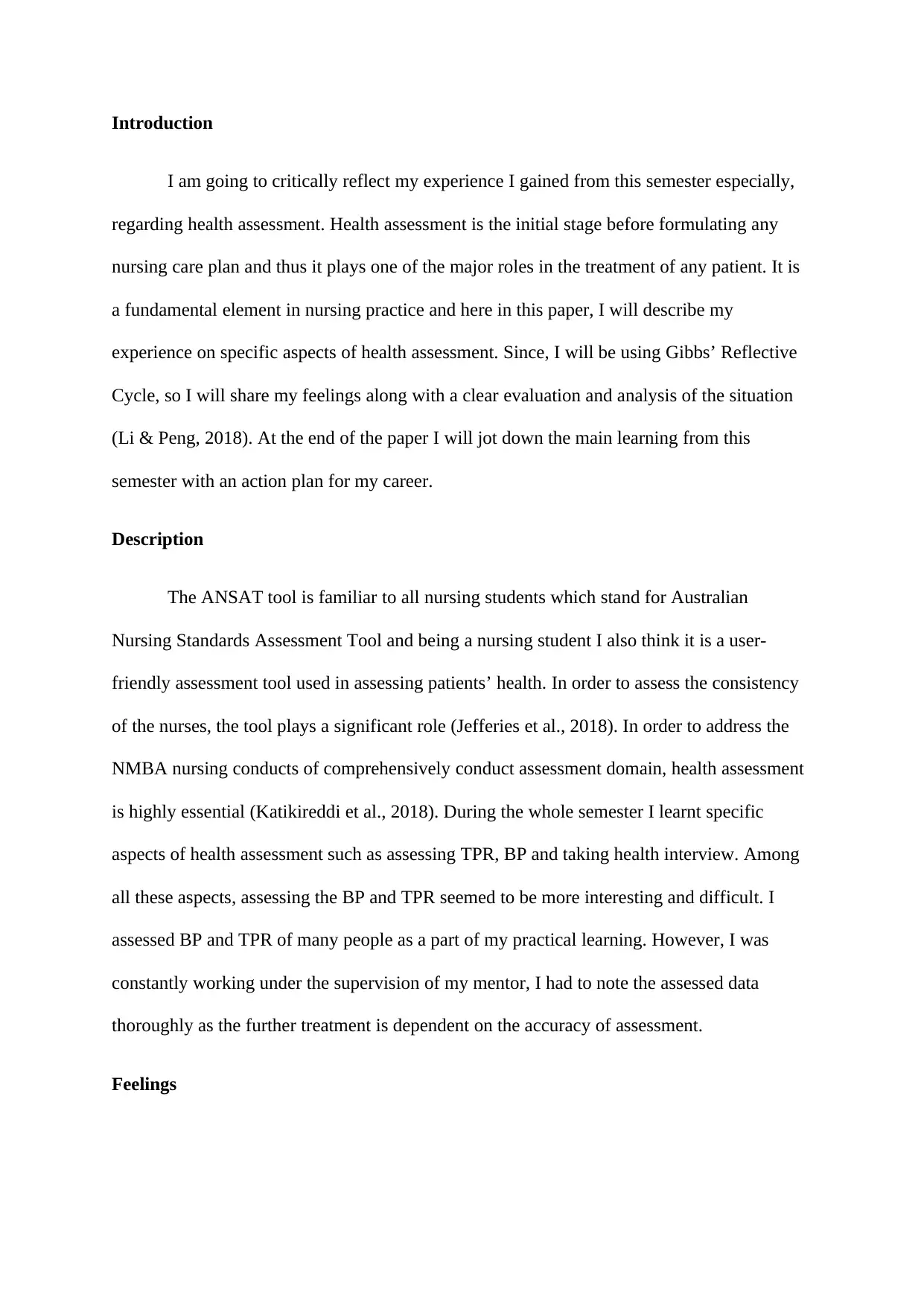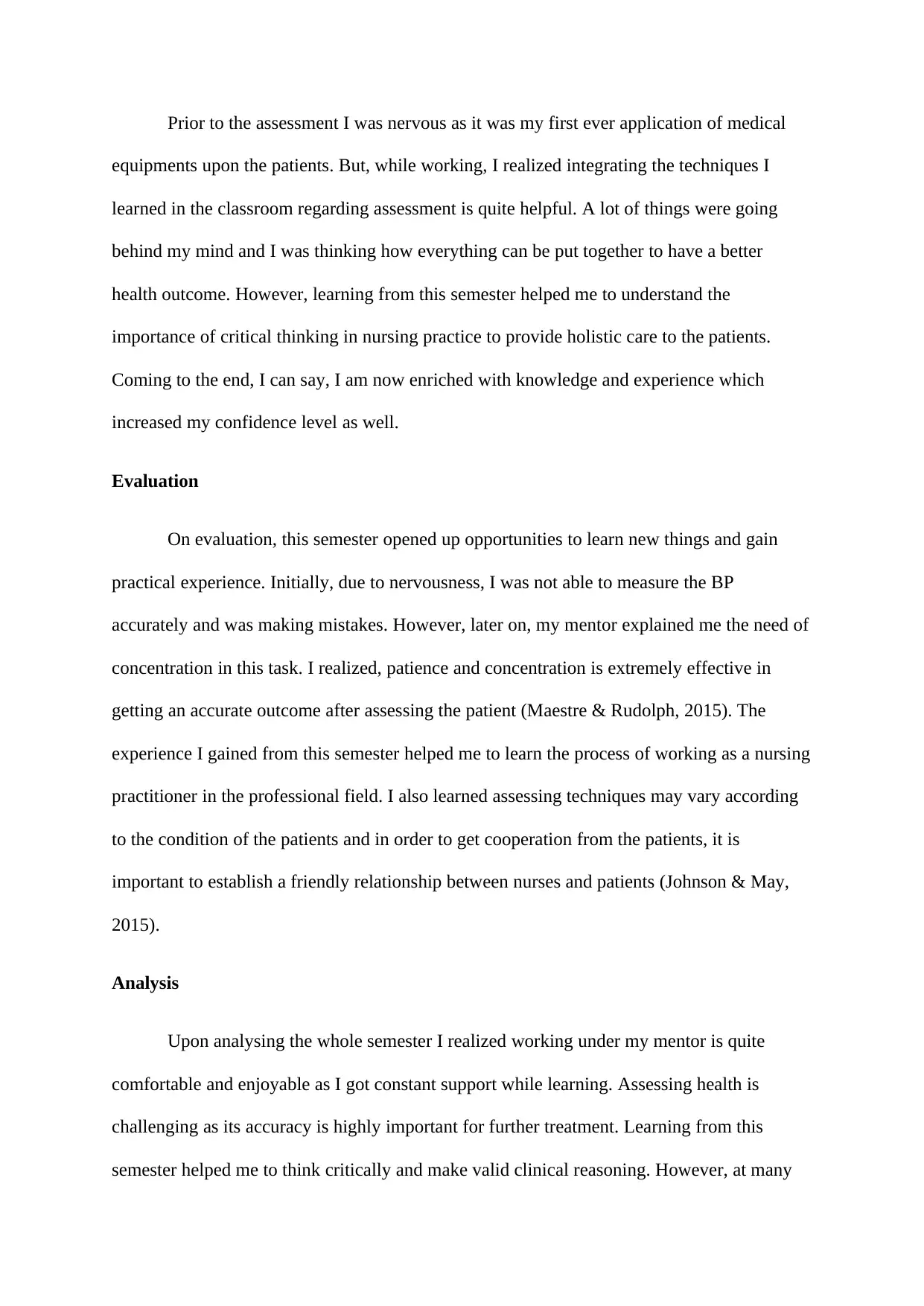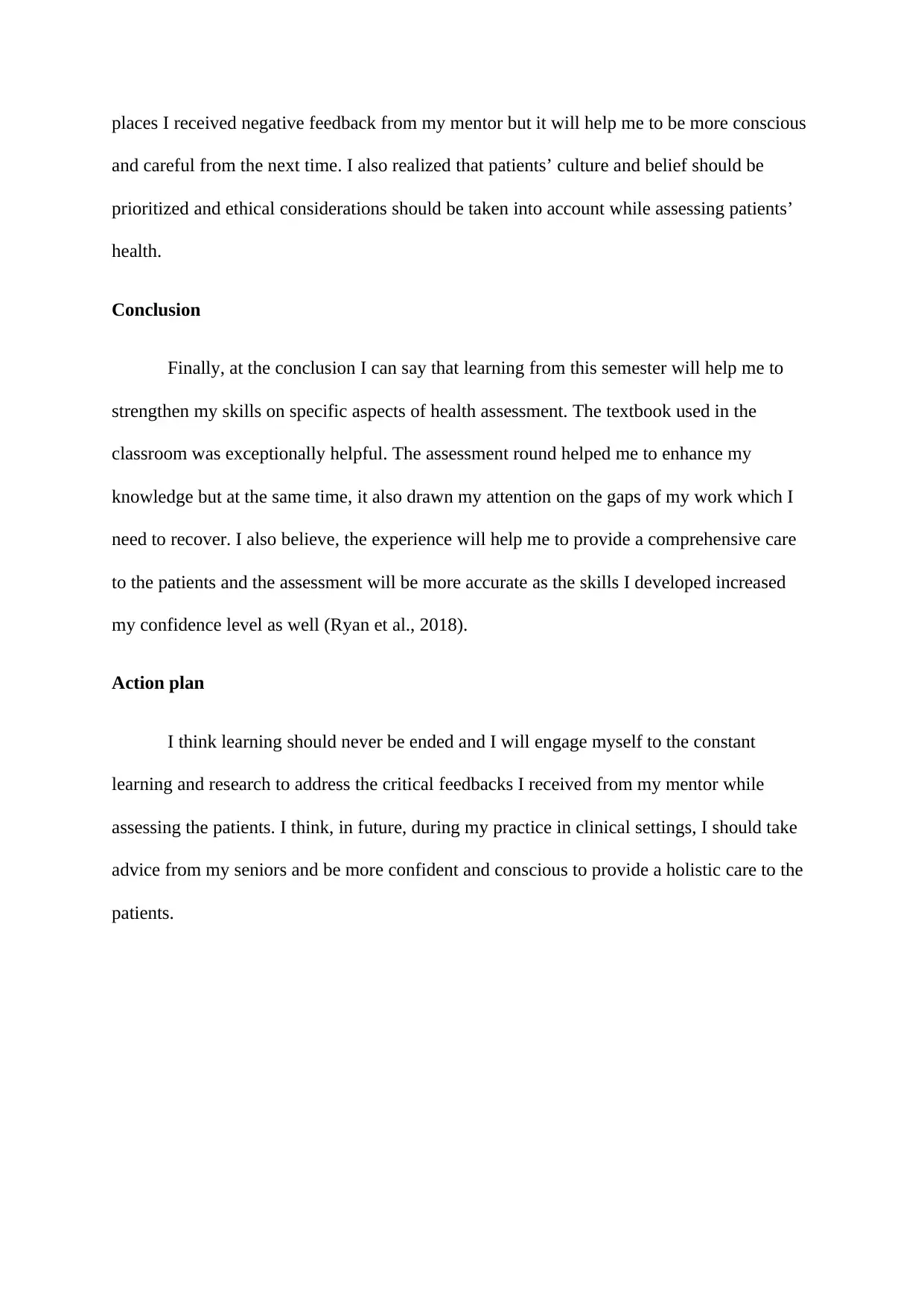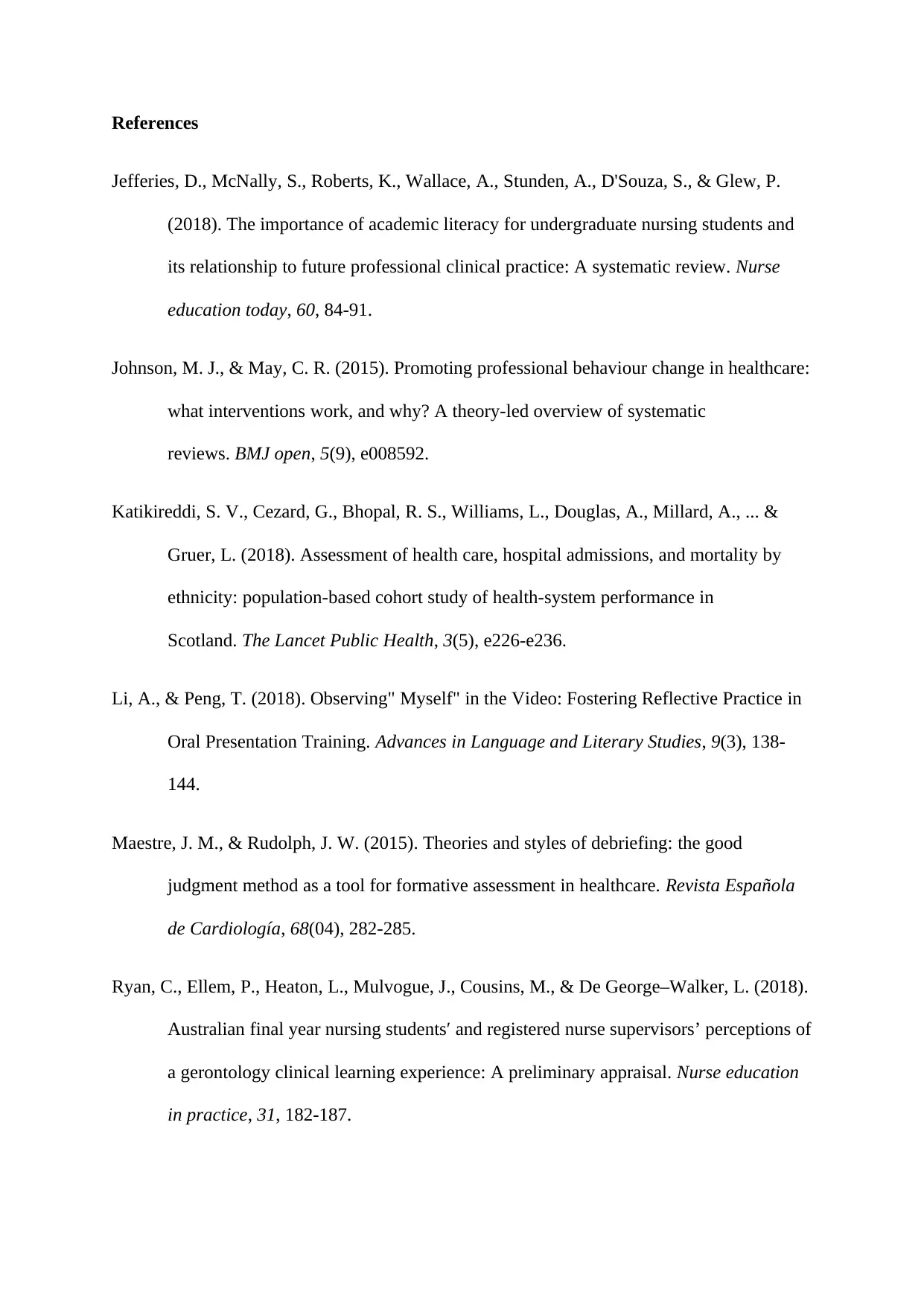Reflective Journal: Semester Experience in Health Assessment Module
VerifiedAdded on 2023/01/19
|4
|1196
|61
Journal and Reflective Writing
AI Summary
This reflective journal entry provides a comprehensive overview of a nursing student's experience with health assessment during the semester. The student utilizes Gibbs' Reflective Cycle to analyze their experiences with assessing vital signs, particularly blood pressure (BP) and temperature, pulse, and respiration (TPR). The assessment process, including the use of the Australian Nursing Standards Assessment Tool (ANSAT), is described in detail. The student reflects on the challenges, such as initial nervousness and the importance of accuracy and critical thinking, and the positive aspects, including the development of practical skills and increased confidence. The journal also highlights the importance of patient interaction, cultural sensitivity, and ethical considerations in healthcare. The student concludes with an action plan for continuous learning and improvement in clinical practice, emphasizing the need for further research, seeking advice from senior colleagues, and maintaining a confident and conscious approach to patient care. The student's reflection emphasizes the importance of practical experience and the application of theoretical knowledge in real-world healthcare settings.
1 out of 4











![[object Object]](/_next/static/media/star-bottom.7253800d.svg)